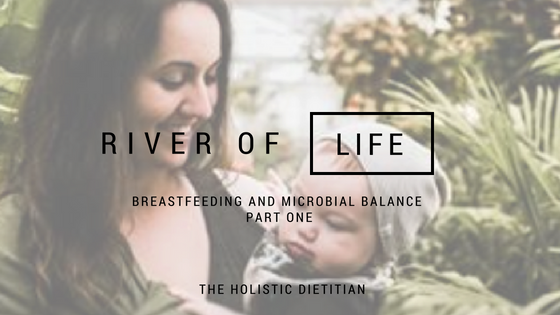
Unless you are an avid gardener, you probably haven’t thought much about the millions of little organisms beneath your feet. Bacteria makes up a vast portion of life here on earth, and we depend on having a healthy microbial imbalance for so many things: good digestion, emotional health.
And when you are a mother-to-be, you are primarily concerned with getting in nutrient-dense foods to support your child’s growth in utero as much as possible. You want to make sure this newest addition is going to get everything he or she needs, and bacterial balance is part of that.
Women are passing on more than just their genes when they become pregnant: they are also passing on their own strains of bacteria!
It was once thought that when we are in utero we are not exposed to any bacteria at all, that at the beginning of life our forming bodies were completely sterile. Research has since looked at there being presence of bacteria shared from the mother with the baby while still in the womb. This means that you can be influencing your child’s microbiome health, and immune system health even before they are born.
In a recent study, it was found that infants who had a lower amount of “good” bacteria strains were at a higher risk for developing asthma or allergies. Not only did they have a lower count of positive strains, such as Bifidobacterium, but they also had a higher level of some fungi strains, namely Candida Albicans. It was also found that samples from this “high risk” group impacted healthy adult immune cells negatively. The “high risk” sample actually reduced T-Regulatory cells, which are responsible for preventing allergic reactions in the first place.
Breastfeeding and Dysbiosis
So, how do you approach breastfeeding if you know you have an imbalance of sorts?
Dysbiosis is really a catch-all term for microbial imbalance. When we have a higher level of “negative” bacterial or fungal strains (such as Candida), we can experience symptoms such as yeast infections, bloating, or frequent bladder infections. If this is present in you as the mother, chances are it might be why your child has been a little fussier lately!
Breastfeeding is one of the best things you can do with your newborn. It is an incredible bonding experience, as well as the chance to nourish your little baby’s body with dense nutrition.
Ideally, it is healthy flora (or bacteria) that is transferred from the mother’s breast to the child. Each milk microbiome is completely unique to that mother and her child and is designed to build her child’s immunity, however this microbiome can change drastically if there is a gut imbalance present.
Food Can Heal, or It Can Hurt
One of the first steps I recommend to take, if you suspect that your little one is exhibiting symptoms of discomfort (gassy, colicky), is to look at what’s in your fridge. As you are looking through all the contents, think about how much of what’s in there has added sugars. Are there a lot of pre-packaged foods? How much fresh food is in there?
In order to help support your little one, you have to know what are the right foods that you need to be eating. And part of that is avoiding top inflammatory foods, such as gluten or dairy.
If you have been struggling with finding the right foods for you, be sure to catch the second installment in this series! I will be sharing some practical tips to help you support both yourself and your baby as you bring your body back to a place of balance!